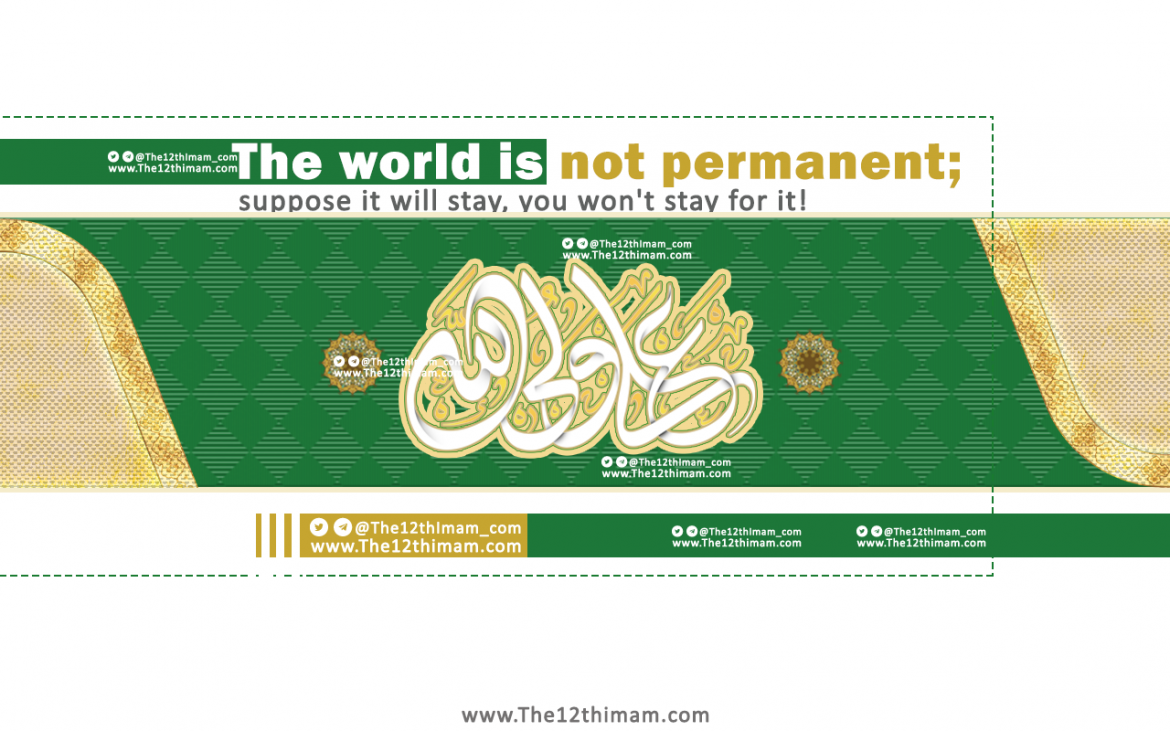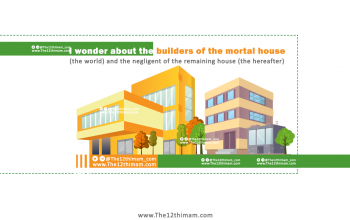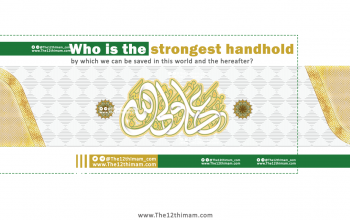In this feuilleton, we want to talk about a beautiful account and to deal with the truth that happens to us throughout history.
Imam Ali, the first successor of the Holy Prophet (peace be upon him), says: The world is in the process of transition from one to another and it is to be lost. Only if the world stays for you, you don’t stay for it.
(الدُّنيا مُنتَقِلَةٌ فانِيَةٌ ، إن بَقِيَت لَكَ لَم تَبقَ لَها)
If we take a look at history, we will realize that great people such as kings and pharaohs, who had palaces and great fortunes, all passed away. In fact, if they accumulated wealth or built palaces or buildings, they disappeared in the course of history, or if their wealth or palaces remained, they themselves perished.
This shows that lucre is not permanent according to the above narration, and secondly, if it remains, the owner of possessions does not remain (of course, these properties and palaces will also disappear after the destruction of the solar system)
In fact, this world does not last, neither for kings nor for people, but since God’s actions and creations are not injudicious, and He has set a reward for our faith and deeds, He has created the Hereafter for survival so that his justice will be established and those who disbelieved and committed wicked deeds and crimes and those who believed and did righteous deeds will receive their reward.
He has created the Hereafter for survival, so that His justice will be established and those who disbelieved. And they did a lot of ugly deeds and crimes, and those who believe and do righteous deeds will get their reward
Therefore, a person should behold what provisions he carries with him for the eternal world or the hereafter
1) Ghurar al-Hikam, ح 1802 , ‘Uyun al-hikam wa al-mawa’iz wa dhakhirat al-muta’iz wa al-mawa’iz: written by Kafi al-Din Abu l-Hassan ‘Ali b. Muhammad b. Abi Nazal Laythi Wasiti, known as Ibn Sharafiyyah, a scholar of the sixth/twelfth century. p.22 , ح 151 .



